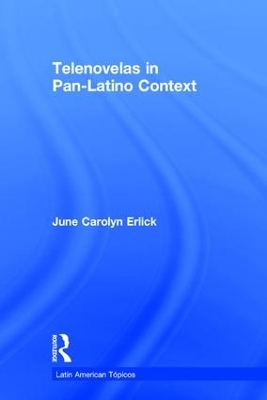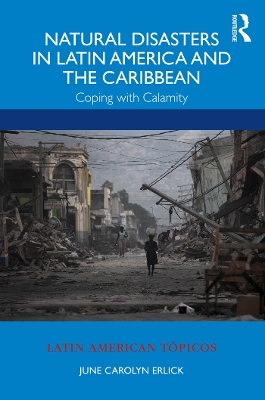Latin American Topicos
2 total works
This concise book provides an accessible overview of the history of the telenovela in Latin America within a pan-Latino context, including the way the genre crosses borders between Latin America and the United States. Telenovelas, a distinct variety of soap operas originating in Latin America, take up key issues of race, class, sexual identity and violence, interweaving stories with melodramatic romance and quests for identity. June Carolyn Erlick examines the social implications of telenovela themes in the context of the evolution of television as an integral part of the modernization of Latin American countries.
Natural Disasters in Latin America and the Caribbean
by June Carolyn Erlick
Natural Disasters in Latin America and the Caribbean: Coping with Calamity explores the relationship between natural disasters and civil society, immigration and diaspora communities and the long-term impact on emotional health.
Natural disasters shape history and society and, in turn, their long-range impact is determined by history and society. This is especially true in Latin America and the Caribbean, where climate change is increasing the frequency and intensity of these extreme events. Ranging from pre-Columbian flooding in the Andes to the devastation of Hurricane Maria in Puerto Rico, this book focuses on long-range recovery and recuperation, rather than short-term disaster relief. Written in the time of the coronavirus pandemic, the author shows how lessons learned about civil society, governance, climate change, inequality and trauma from natural disasters have their echoes in the challenges of today’s uncertain world.
This book is well-suited to the classroom and will be an asset to students of Latin American history, environmental history and historical memory.

